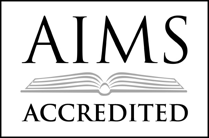The Places We Carry
July 8, 2022 by
The following speech was delivered by Middle School Director Lisa Schopf at the class of 2022 graduation ceremony.
On our last day in Israel together, I spoke to you about how we can carry places we have been inside of us- retaining the insights, feelings, and perspectives we gained through our experiences in those spaces. During our eighth grade trip to Israel, we visited so many places that evoked within us inspiration and connection, but I want to focus on three places, three moments of our trip that I hope will always resonate as you carry those places with you.
We finally landed in Israel after many hours of travel and many months of planning. Our first stop was the area of the ancient Roman aqueduct in Caesarea. As we left the bus and walked onto the sandy beach and sat alongside the aqueduct, you ate lunch as you looked out to the sun-dappled Mediterranean. Then you weren’t just looking at the water– you were in it, jumping in the water, then running back on the sand, climbing on the aqueduct and then climbing back down when we kindly asked you to resist scaling the ancient ruins. After so many months, being at home, being on Zoom, adjusting to the challenges of living in the age of Covid, you seemed fully free and fully joyful. I hope you carry the beach in Caesarea in your minds and in your hearts. You can draw on it to find joy and light when reality seems dark, as it can provide the memory and the lesson that joy can be discovered and cultivated after a long struggle or even during it- because we don’t only find joy- we can make it. As you did at that moment.
Speaking of finding things… At Beit Guvrin, an archaeological site, we patiently dug and sifted through layers of dirt to find pieces of pottery, remnants of civilizations, artifacts from people and lives that had existed there centuries before. There was such an energized spirit of exploration and excitement over discovery. You worked individually and joined together in an effort to find buried treasures. But the treasures we sought were not made of gold or jewels; rather we tried to find a section of a mug, an intact handle, maybe a piece of metal. We were searching for artifacts that were used in everyday life. They would give us a clue to past lives, and a connection to people who lived long ago. As you carry this space with you- this time of being in a cave, sifting through dirt, I hope it reminds you to be patient and persistent in your search for new discoveries and meaning. And even more, I hope this space, and the experiences we had there can always remind you that the everyday items, the seemingly ordinary experiences, the day-to-day routines and interactions are, in fact, the treasures. The everyday moments of our lives may not always stand out in our memory as highlights, but they give our lives texture, vibrancy, and constancy, and ultimately they become significant in being the artifacts of our lives. We often don’t note them as special or valuable when we are living our ordinary moments. But just as we valued finding clues from the ancient past and lives of other people, I hope you can take a moment to sift through the objects and experiences of your everyday lives to appreciate the treasures they hold.
Speaking of ancient things…We visited the Kotel, the Western Wall, a number of times during our trip. This sacred site brings people together from all parts of the world. People praying at the Wall find meaning, inspiration, and a link to the generations and generations who have longed to come to this place, seeking answers, expressing their needs, and finding comfort and strength. At one point, you decided to come back to the Kotel on Shabbat morning to have one more time at this holy place and to define this experience as you wished and leave with it claiming an enduring space in your hearts. I hope you always hold on to the personal feelings you felt at the kotel, and that all the wishes and prayers that filled your heart come true. I also hope the memory of your time in this place- as this picture reflects- reminds you of the unity you felt together when we were there. Unity among yourselves as Milton students, and also unity with people more broadly. It is so easy to find and focus on our differences, what divides us. But there is strength and comfort in unity- even across great diversity.
You may each have come up with three different places in Israel that evoke the enduring images, feelings, and lessons you want to carry with you. Think about those and carry those with you. And as you spend your last few moments in this building, at Milton as a student, think about the places in our building- the current one- the swing space- the original North Campus, and South Campus, that stand out for you as representative of the joy, learning, connections, and friendships you cultivated. Carry those places with you too.
I recently received a collection of poems by Amanda Gorman as a gift. This past Shabbat I began reading it and the title “Call Us What We Carry” caught my attention immediately as it happened to connect with this speech I was writing in my head. The title conveys the idea that we are created, our identity is formed by what we carry with us. It may be conventional to think that having a lot to carry can bend us, can weigh us down. But the more we carry, what we choose to take along and what we bring forth because of our life experiences- can strengthen our spines, embolden our courage, and empower our spirit. As Amanda Gorman wrote, “What do we carry, if not what and who we care most for.” Take a look around at all the people here, think about all the people and places that you carry within you and that you will carry forth as you find new places to discover and new people and experiences to carry with you along your way. I hope you keep the lessons, memories, and relationships you developed here with you. And if you need any refresher on those, come on back to this place for a visit. We miss you already.






